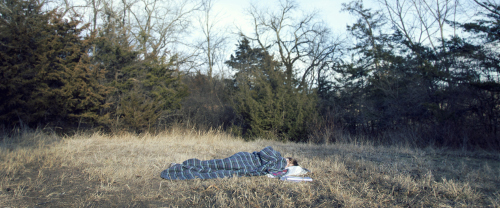How to avoid the winter blues
By Valerie Velikaya
The holidays are officially over, but despite being greeted by the hopeful beginnings of a brand new year, many students continue to battle with the remains of the season.
For the most part, winter is perceived as a time to cuddle up with a good book, hibernate beneath a bundle of blankets while “trying” to stick to that aching list of resolutions.
People tolerate these frigid, bitter days (some may even enjoy it); however, for others, it’s an endless cycle of despondency – similar to a seasonal flu that plagues them once a year. Those afflicted with Seasonal Affective Disorder (SAD) often believe the only cure is to endure it until it gradually meets its own demise.
Mary Jean Billingsley, coordinator of the college’s mental health task force, believes seasonal depression is at its worst from December to March.
“It can manifest itself by presenting depression where people are having difficulty engaging and interacting with people in a healthy way,” said Billingsley. “We just want to hunker down and go into a cave.”
Detachment occurs for a number of reasons, whether due to a lack of sunlight or not enough rest. Billingsley recommends getting both.
“Our bodies need that vitamin D-3 from the sun,” said Billingsley. “Sleep is effective as well. [When students] are not getting an adequate amount of sleep … it’s hard to function in a way that’s productive.”
Nevertheless, some students may recall an unfortunate experience pertaining to the winter months.
“I know for some people it’s been more like if something bad has happened to them during that specific time in the past,” said Kyle Clark, student, “and they’re kind of like, ‘I remember this.’ It’s not too fun to be in this particular season.”
Students are encouraged to speak to any of the counselors if they’re feeling melancholy.
“What’s great about our campus is the counselors we have available in the counseling center,” said Billingsley.
If deemed necessary, a college counselor has the ability to refer students to Saint Luke’s Health System where they can get up to five free counseling sessions.
If a student wants to take a more “active” approach, Active Minds is an organization on campus designed to create dialogue and awareness of mental health issues specifically among students.
Susie Sympson, adjunct associate professor of psychology, is the adviser for Active Minds, whose motto is, ‘not everybody has mental illness, but everybody has mental health.’
It began as a way to “make [depression] easier for people to talk about so it wouldn’t be so stigmatized,” said Sympson.
Active Minds is in its 11th year and has received a five-star certification since it began. The organization takes part in the planning and cosponsoring of activities along with other groups.
“Our whole goal is to start the conversation about mental health,” said Sympson.
Active Minds isn’t a therapy group but an advocacy group. This includes advocating for resources as well as spreading awareness of the prevalence of mental health issues across the community.
Though it’s not a support group, it can be supporting to be a part of something like that.
“In fact, if you go on the national website,” said Sympson, “you’ll see postings of people who credit Active Minds for saving their lives.”
There are several ways to cope with seasonal depression, and it’s best to take immediate action while it’s still under control, otherwise it may continue to escalate, making it seem insurmountable to conquer in the future.
Active Minds meets every Wednesday at noon in CC 212. For more information on Active Minds, visit activeminds.org or contact Susie Sympson (ext. 6425 or [email protected]). To schedule an appointment with a counselor, call 913-469-3809.
Contact Valerie Velikaya, staff reporter, at [email protected].






















